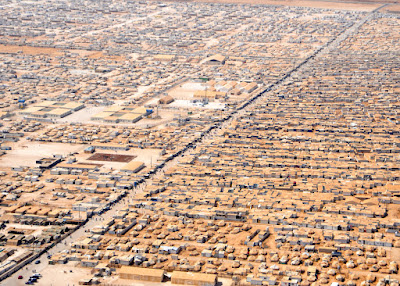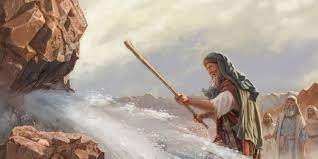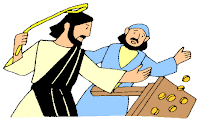While keeping the Feast of Tabernacles this year - Holidays or Holy Days [1], the water heater at our accommodation failed on the first day. The owner did not manage to get it replaced during the Feast, so we never did get a hot shower for the eight days we were there.
According to BackThen History [2],
The first shower that we would recognize today didn’t come about until 1767
And indoor plumbing didn't really become commonplace until the early 20th century, nearly universal by 1960. For all but the last 100 years or so, mankind has not had hot showers. The indoor bathroom has gone from a novelty into a universal household fixture in the span of 100 years - VoxBlend [3]. We live in an unusual time in history.
Many of us still remember housing without bathrooms.
If you like this (or not), check out my other articles at the
Because of the no hot shower situation, our conversation turned to “what was life like for the Israelites when they came out of Egypt?” After all, the Bible gives us this reason for dwelling in booths during the Feast.
Lev 23:42 You shall live in booths for seven days; all the native-born* in Israel shall live in booths, 43 so that your generations may know that I had the sons of Israel live in booths when I brought them out from the land of Egypt.
Besides not having hot showers, what was it like? Well, it was much like camping - camping that never ended for 40 years.
Have you been camping? In a tent? With no plumbing nearby? In the desert? With a million other campers?
The Muslims do it every year. During the annual pilgrimage to Mecca called the Hajj, the pilgrims dwell in tents in Mina. Muslims are expected to make the pilgrimage at least once in their lifetime.
The Mina valley is an open space covered with more than 100,000 air-conditioned tents and it can accommodate more than 2.6 million people, extending over 2.5 million square meters (8+ sq mi) - NationalNews [4].
 |
| Tent City Near Mina |
The Mina Valley is located 8 kilometers to the east of Mecca, Saudi Arabia. Inside the valley, as far as the eye can see, the open space is covered with tents. WelcomeSaudi [5]
The number of Pilgrims in one Mina tent varies according to the Pilgrim’s Hajj package and travel facilities. The highest category Mina tents have around 10 Pilgrims, while the lowest category [some] tents can have up to 100 Pilgrims. BlessedNights [6]
 |
| Inside a Hajj Tent |
Pilgrims share communal areas, toilets and bathrooms. They have access to freezers and fridges at receptions, serving cold water, snacks and ice-cold refreshments free of charge throughout their stay. [4]
I bet they have hot showers...
I contacted with a friend who has made the Hajj pilgrimage. She told me they only stay in the tents for a couple days during the ten day Hajj.
But that's not really sustainable for 40 years in the desert. A more accurate comparison is to refugee camps. When Israel came out of Egypt, they were international refugees, people displaced from their homes with no country of their own - YET.
During the Hajj, people are separated by gender into tents, up to 100/tent. Israel was organized by families, as are modern refugee camps.
The United Nations High Commissioner for Refugees (UNHCR) has guidelines for refugee camps. Israel would have had similar needs. The following information is from Wikipedia(wiki_refugee) [7].
According to UNHCR vocabulary a refugee camp consists of settlements, sectors, blocks, communities, and families. Sixteen families make up a community, sixteen communities make up a block, four blocks make up a sector, and four sectors are called a settlement.
Sleeping accommodations are frequently tents or huts, a minimum of 3.5 sq m (37 sq ft) of covered living area per person (about a sheet of plywood) . Shelters should be at least 6 ft apart.
 |
| Aerial View Of Za'atari Refugee Camp Jordan |
 |
| Refugee Children Carrying Water |
Places for water collection: Either tanks off-loaded from trucks, or water tap stands connected to boreholes. One tap stand per 80 persons that should be no farther than 600 ft away from households.
Each refugee is supposed to receive around 5 gal of water a day, but some may get as little as 2 gal per day.
I bet they have hot showers...
The World Food Programme (WFP) provides food rations twice a month: 2,100 calories/person/day. Ideally, it should be:
9 oz (260 g) whole grain (maize or sorghum)7 oz (200 g) milled grain (wheat flour)1.5 tablespoons vegetable oil1 teaspoon salt3 tablespoons pulses (beans or lentils)
Note this is less than half an omer, that is half the daily quantity of manna each Israelite was allotted in the wilderness - Wikipedia(Omer) [8].
According to Al Jazeera, the largest refugee camp is about a million Rohingya refugees in Bangladesh.
As of July 2023, at least 931,960 Rohingya refugees lived in 33 camps in Bangladesh’s border district of Cox’s Bazar. The sprawling network of camps, which is prone to landslides, covers a tiny area of about 24 square kilometres [10 sq mi]. Al Jazeera [9]
Reminder
Lev 23:43 so that your generations may know that I had the sons of Israel live in booths when I brought them out from the land of Egypt.
So what was it like? Like a refugee camp – an organized refugee camp. Numbers 2 gives instructions on how Israel was to camp around the tabernacle.
The Tabernacle is in the center of the camp, the Levites camped around the Tabernacle. The twelve tribes camped in a particular order around the Levites. This is a summary of the size of the camps.
Judah+Issachar+Zebulon on the East 186,400
Rueben+Simeon+Gad on the South 151,450
Ephraim+Manasseh+Benjamin on the West 108,100
Dan+Asher+Naphtali on the North 157,600
Some depict the camps as spokes.
 |
| Israel Camp As “Spokes” |
Some depict the camps as rings.
 |
| Israel camp as "Rings" |
Some argue the camps formed a cross.
 |
| Israel Camp As A Cross |
None of them seem accurate when you consider that 600,000 men left Egypt (Ex 12:37, Num, 2:32). Consider this image.
 |
| Israel Camp Pictures NOT To Scale |
This picture shows the camp of Kohath which has 8600 males (2750 over 20), (Num 3:28) is smaller than the Tabernacle. The Tabernacle including courtyard was about 75 ft x 150 ft (Ex 27:9,13)or about 11,000 sq ft. This image gives about ONE sq ft per male. The box for Judah represents 74,000 males. The other images have similar inconsistencies.
Assuming one man = one family = one tent.
Assuming 20 x 20 tent space + setback.
Assuming no roads, level ground.
800 tents x 20 feet/tent =~ 3 mi.
600,000 tents is 3 mi x3 mi =~ 10 sq mi.
Add trails and roads like city blocks, add 20 ft in one direction every 2 tents, 20 ft in the other direction every 10 tents means that 600,000 tents is about 15 sq mi.
The cross arrangement is based on population sizes and would take about 60 sq mi. Some people would have to walk up to 5 miles to reach the Tabernacle.
And it's probably worse than that. Consider these items would require even more space.
Add flocks and herds, where were they?
Add the mixed multitude, where did they camp?
Where did they gather manna? In their “front yard”?
Water In The Desert
Providing water was a great miracle. Hiking in the desert requires one quart of water per hour, less if you're sedentary - SurvivalSavior [10]. No matter what you do, a couple million people in the desert will require a LOT of water. Remember, UNHCR suggests 2-5 gals per person per day. Two million people x 2 gals is 8 Olympic swimming pools worth of water - PoolResearch [11] EVERY DAY, that's 400 tanker trucks - TruckGuider [12]. Flocks and herds also require LOTS of water.
I think it's safe to say that God didn't provide tanker trucks or “water tap stands”, nor that Israel found abundant springs and wells in the desert. Nor rainfall. Some kind of miracle occurred every day. Where Israel got water for 40 years is debated, one theory centers on 1 Co 10:4.
1 Co 10:4 and all drank the same spiritual drink, for they were drinking from a spiritual rock which followed them; and the rock was Christ.
 |
| The Rock Was Christ |
This carefully says the “spiritual drink, spiritual rock”, but Jewish tradition of the time speaks of a rock that accompanied them that gave physical water. So was Paul was citing tradition - Living Faith [13]? I can't say.
For many reasons, God wants us to know that He made Israel to dwell in tents. We live in age that is very far removed from the trials of camping in the desert. We are shocked that someone would have to go the entire Feast of Tabernacles without a hot shower. But ours is the only generation that could even have that expectation. Our past, our roots as a people, our “tribe” began as campers in the desert. And because we are so far removed from life in the desert, it's all the more important that we not forget what their lives were like.
Final Thought
Here's another reason to understand life in tents on a large scale - It's going to happen again. Prophecy says Judah and Israel (America included) will be taken captive, but God will deliver us. Refugee camps like never before.
Jeremiah 16:14 Therefore, behold, the days are coming, declares the Lord, when it shall no longer be said, ‘As the Lord lives who brought up the people of Israel out of the land of Egypt’, but ‘As the Lord lives who brought up the people of Israel out of the north country and out of all the countries where he had driven them.’
Is 11:11 Then it will happen on that day that the LordWill set His hand the second time to recover [first time was Exodus]The remnant of His people who will remain,From Assyria, Egypt, Pathros, Cush, Elam, Shinar, Hamath,And from the islands of the sea.12 And He will lift up a flag for the nationsAnd assemble the banished ones of Israel,And will gather the dispersed of JudahFrom the four corners of the earth.
Refugee camps like never before. That day may soon be upon us.










.jpg)



